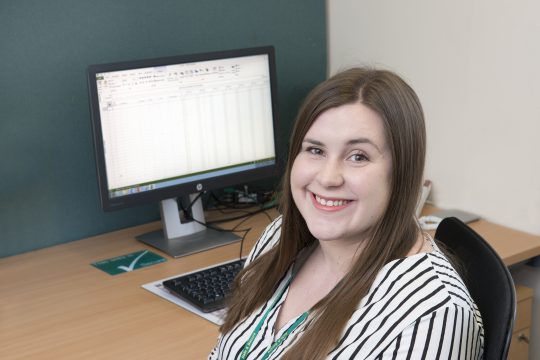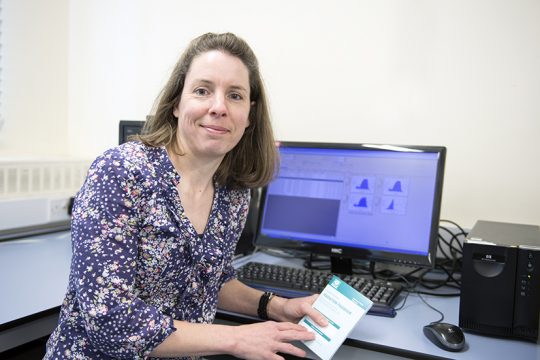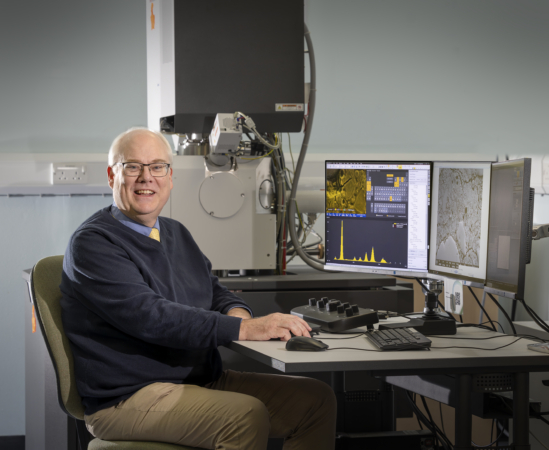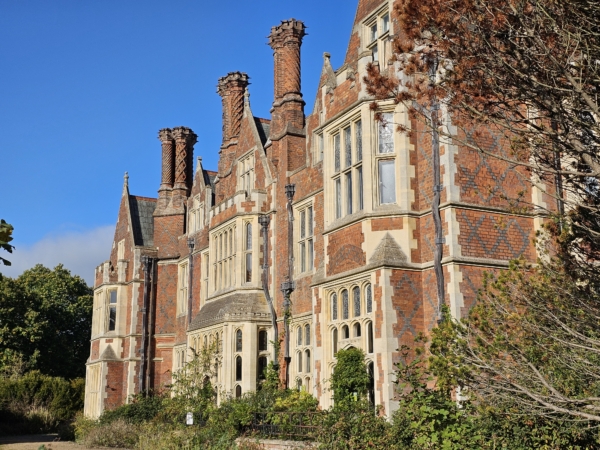Celebrating the women of AWE
To mark International Women’s Day we are sharing the stories of some of the many inspirational women that work at AWE.
Molly, a materials science graduate, tells her story –

“I have always had a keen interest in science. However, my School’s head of science was pivotal in shaping this as a career option. Her support and encouragement as a role model woman in science gave me the confidence to dream that maybe one day I could be like her – a professional scientist.
That led me to take Chemistry A-level and go on to Loughborough University where I graduated in 2015 with a Masters in Chemistry.
I was very excited and a little nervous to get the opportunity to interview with AWE. To be at the forefront of science and to contribute to the nation’s defence is an awesome responsibility. But something I thought I could contribute to.
I approached the selection process determined to be myself and give it a go. As a result I joined AWE in 2017 on the graduate scheme as a Materials Chemist in Materials and Analytical Science (MAS).
Working at AWE has been great. They have supported me to use my science knowledge on a day to day basis but also to take advantage of the many opportunities for wider development.
Although I work in a male dominated field, I’ve found the AWE workplace to be very encouraging of diversity and equality. Many of my senior managers are women and the organisation and top leadership are extremely supportive of LGBT diversity through AWE pride.
As a female science graduate, AWE is an amazing place to grow as a role model and inspire the next generation of girls and women to get involved in STEM.”
Mary, a radiation protection adviser, tells us her career story –

“I chose to study physics with astronomy and astrophysics at St Andrews University because… well who wouldn’t want to! I enjoyed the radiation parts of my degree course so I undertook an MSc degree in Applied Radiation Physics at Birmingham University.
That led to a trainee medical physics job after which I was recruited as a Radiation Protection Adviser (RPA) at the National Radiological Protection Board in Oxfordshire. Over the years, I became an RPA and laser protection adviser to many companies but after 10 years, I was ready for a change and applied to AWE as an RPA.
Being an RPA at AWE was very different to the non-nuclear work I was used to; different isotopes, different work processes and a more stringent safety culture. It wasn’t long before I was RPA to a number of facilities and then part of the off-site response arrangements which brought an even greater variety of situations and responsibilities. I then moved sideways to work in the personal dosimetry area. Throughout my 12 years on site, I have been an investigator and recently, it became clear that the level of demand on members of the Criticality Safety Group has never been higher. So, I have started a new challenge, a secondment in criticality safety where I’m learning new skills such as computer modelling and writing safety assessments that are needed to underpin all our fissile activities.
I have continued to support the UK radiation profession, and am currently an elected council member of the Society for Radiological Protection. In addition, I have been part of UK regulator/industry working groups and UK dosimetry groups. Furthermore, for a number of years, I have been an external assessor for RPA applicants. All of this work has demonstrated my commitment to the profession within the UK, which was recently recognised as I was elected as a fellow of the Society for Radiological Protection. I enjoy new challenges and I see it as a good thing to move around and get involved. That is what AWE can do for you.”



